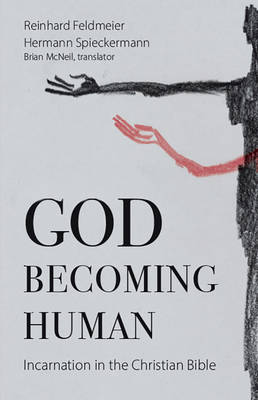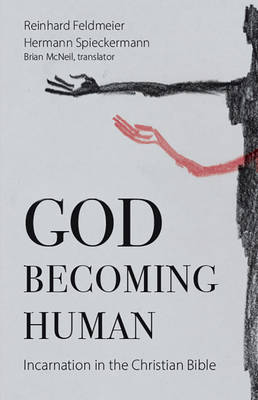
- Retrait gratuit dans votre magasin Club
- 7.000.000 titres dans notre catalogue
- Payer en toute sécurité
- Toujours un magasin près de chez vous
- Retrait gratuit dans votre magasin Club
- 7.000.0000 titres dans notre catalogue
- Payer en toute sécurité
- Toujours un magasin près de chez vous
God Becoming Human
Incarnation in the Christian Bible
Reinhard Feldmeier, Hermann SpieckermannDescription
The incarnation--the act of God assuming mortal flesh through Jesus Christ--reveals God's radical love for a world marked by the rebellion of the created against their creator. God becomes human to create life and restore the disrupted divine-human relationship. This doctrine is thus the theme of the Christian faith par excellence. However, the incarnation does not begin with its ultimate realization in Jesus Christ; that single event is preceded by a long history of a God who continually reunites with his people to lead them from death to life, from bondage to freedom.
God Becoming Human pursues the astonishing arc of the incarnation, chronicling the varying ways Scripture recounts the divide between God and the creatures of his likeness as well as the diverse expressions the text gives regarding the desire for reconciliation. As the expectations of an existing intermediary that can somehow bridge this gap between God and humans dwindle throughout the Old Testament, hope is increasingly placed on new forms of closeness to God. The closeness made possible by Jesus Christ receives a wide range of interpretations by New Testament witnesses and is continued by a rich chorus that culminates in the early church with the theology of the incarnation.
Reinhard Feldmeier and Hermann Spieckermann invite readers to see that the doctrine of the incarnation, the pinnacle of the scriptural saga of redemption, reveals that God's ultimate purpose in dealing with creation was to become human. As narrated in the story of the fall, if paradise was lost because humanity wanted to emulate God, the one reconciled with God through Christ is now given the opportunity--and challenge--to become a child of God. In accordance with the One who descended from the heavenly throne, one must precisely lower oneself and thus fully embrace one's created humanness. It is through the flesh that the created and their creator are joined; there is no other path to unity.
Spécifications
Parties prenantes
- Auteur(s) :
- Traducteur(s):
- Editeur:
Contenu
- Nombre de pages :
- 477
- Langue:
- Anglais
Caractéristiques
- EAN:
- 9781481313544
- Date de parution :
- 01-03-21
- Format:
- Livre broché
- Format numérique:
- Trade paperback (VS)
- Dimensions :
- 196 mm x 226 mm
- Poids :
- 589 g

Les avis
Nous publions uniquement les avis qui respectent les conditions requises. Consultez nos conditions pour les avis.






